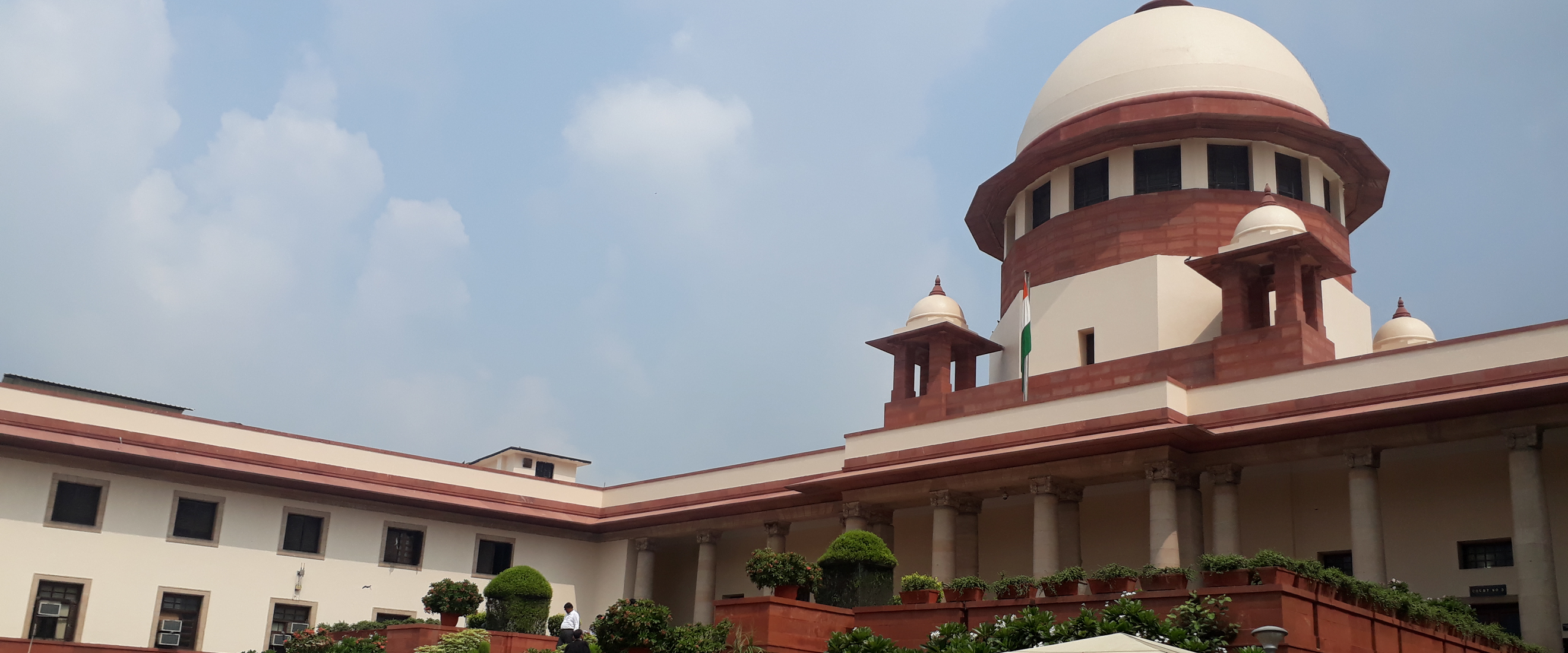Analysis
5 Cases to Watch For
The Union is lifting lockdown restrictions and the Supreme Court is opening up. These are the key cases to watch for.

To prevent the spread of COVID-19, the Supreme Court has been operating at a reduced capacity since March 16th. For the last few months, it was only hearing extremely urgent cases. However, with the Union lifting lockdown restrictions, the Court has slowly begun to resume normal operations.
With the Court opening up, what are the key cases to watch for?

Source: ‘Supreme Court of India, inside bulidings 01’ by Pinakpani is licensed under Creative Commons (Attribution-Share Alike 4.0 International)
1. Sabarimala Review – Before the lockdown, the Court indicated that it would prioritize hearing this Constitution Bench over others. The nine-judge Bench led by Chief Justice Bobde is determining the contours of the right to freedom of religion and its relation to other fundamental rights. Its judgment will not only determine the final outcome of the Sabarimala dispute, but also likely delimit the bounds of Articles 25 and 26 for years to come.
2. Citizenship Amendment Act – In December 2019, Parliament amended the Citizenship Act, 1955 to offer illegal migrants a path to citizenship on the basis of religion and country of origin. The Amendment was met with nation-wide protests by groups from across the political spectrum. While some contended that the Amendment would be used in combination with the NRC to reduce Muslims to second-class citizens, others feared that it would result in a large wave of migration from Bangladesh to North Eastern states. Over 200 petitions have been filed in the Supreme Court, challenging the constitutionality of the Amendment.
3. Article 370 – With this dispute, the Court faces another highly politicized case. Article 370 granted the State of Jammu and Kashmir special constitutional status. Unlike other States, it enjoyed substantial independence from Union legislation. However, in August 2019, the Government effecively did away with Article 370 and introduced legislation that bi-furcated the State into two Union Territories. As it’s been almost a year since these changes, the Petitioners will be hoping this doesn’t become a case of fait accompli.
4. EWS Reservation – In January 2019, Parliament brought about a tectonic shift in reservation policy by amending the Constitution to allow reservations to be granted to ‘economically weaker sections’ (EWS). The Government can now grant reservations in education and public employment on the basis of economic criteria alone. Fearing that this disadvantages SC/STs and OBCs, various litigants have filed petitions in the Supreme Court challenging the Amendment’s constitutionality. Among other things, the petitioners contend that by excluding SC/STs and OBCs from EWS reservations, the Amendment violates Article 14 of the Constitution.
5. Electoral Bonds – In 2018, the Government drastically altered the nature of electoral funding by introducing the electoral bonds scheme. Electoral bonds allow individuals and corporations incorporated in India to make donations to political parties. There is no upper limit on bonds. While the Government claims that the scheme has introduced greater transparency, detractors like the Association for Democratic Reforms say that it allows for anonymous corporate funding on unheard of scales. Further, opposition political parties argue that it unfairly favours the ruling party. The Court last heard the case shortly before the 2020 Delhi Elections, however has since not held any hearings. The case will likely only make the headlines again at the end of the year, in anticipation of the upcoming Bihar Legislative Assembly elections.
